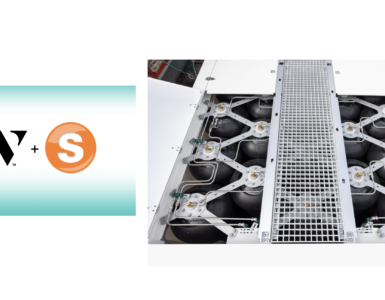Hydrogen monitoring just makes sense.
How do you know if you should invest in hydrogen monitoring for your fleet of transformers? Here’s an instructive analogy:
Do you worry if your house is going to burn down? If you’re not worried about it, then why does your house have smoke detectors? If you’re worried about it, do you have more protection than smoke detectors? Have you installed a complex sprinkler system in your house to minimize the chance of your house burning down? Does it have a computer interface with a dashboard and a lot of functions you have no idea how to react to if there’s an alarm?
You can think of transformer failures in the same way you think about the protection you have to alert you to a fire in your house. A smoke detector doesn’t prevent a fire from occurring, but it alerts you to an issue that could mean your house is burning down. In the same way, hydrogen monitoring detects issues inside your transformer by alerting users to something inside actively generating gas.
🔥 What about we co-host a webinar? Let's educate, captivate, and convert the hydrogen economy!
Hydrogen Central is the global go-to online magazine for the hydrogen economy, we can help you host impactful webinars that become a global reference on your topic and are an evergreen source of leads. Click here to request more details
If you’re responsible for 1,000 transformers and you know that at least 10 of them will fail next year (1%), can you tell which ones will fail? How many failures do you think you’ll detect BEFORE THE FAILURE by following the conventional practice of installing comprehensive hydrogen monitoring on only 100 (or 10%) of them? How many will you detect BEFORE THE FAILURE if you have hydrogen monitoring on all 1,000 transformers for about the same cost as the 100 complex systems?
Hydrogen monitors provide the ability to detect an issue before the failure of your transformer. With a hydrogen sensor, you are still able to monitor the health of your transformer, like a check engine light, and at a more budget friendly price point. It just makes sense.
About the author:
Leon White is Vice President of Transformer Sales and Business Development at H2scan. Leon has 15 years of utility experience including an extensive background in electric substations and online transformer monitoring.
A true believer in hydrogen monitoring, Leon previously worked at Qualitrol, General Electric and Ameren. He is a Professional Engineer and a member of the IEEE Power and Energy Society. He received his Electrical Engineering and MBA degrees from Southern Illinois University at Edwardsville.
READ the latest news shaping the hydrogen market at Hydrogen Central
Hydrogen Monitoring Just Makes Sense, April 26, 2023








